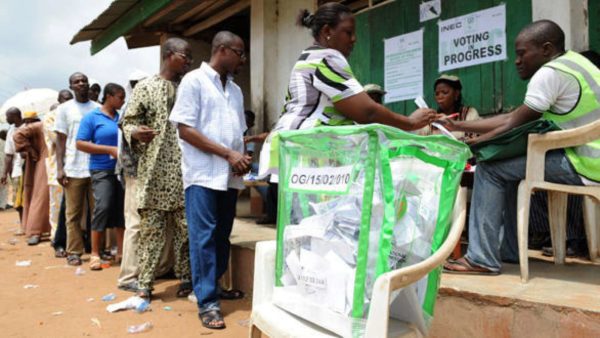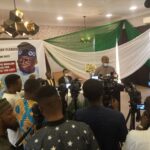By A. Chukwu
The Nigerian transitional arrangement is structured in such a way that the President, Governors, National, and State House of Assembly members are constitutionally allowed a four-year term – which is subject to renewal – upon elections conducted by the Independent National Electoral Commission (INEC), the only statutory body empowered to superintend over the democratic ritual that midwifes the emergence of the said category of public officers.
It was in due execution of that mandate, that the Independent National Electoral Commission released timetable for the 2023 general elections, wherein it
set the Presidential and National Assembly elections for February 25, while governorship and state assembly polls are slated to hold on March 11 of the same year.
It is important to stress the fact that Nigeria, the most populous black nation in the world, operates a constitutional democracy, which finds its essence and meaning in structured electioneering, which ushers in elected public officials, whose loyalty – ordinarily – is to the people.
Expectedly, the electoral process is primarily about citizens and community participation which, in turn, is underpinned by interest, and as Karl Marx and Friedrich Engels succinctly stated in their Communist Manifesto, “the history of all hitherto-existing society, is the history of class struggle”.
Before delving into the crux of this piece, it will serve useful purpose to recall the definitions of “politics”, from the points of view of some world-acclaimed social scientists, in a bid to situate issues.
David Easton defined Politics as “The authoritative allocation of values and resources”, Harold Lasswell sees it as “who gets what, when and how”, while the German sociologist, Marx conceived the concept simply as “struggle for power”.
Relatedly, Nigeria is in a period of transition, and as many have submitted, the 2023 elections, especially the presidential, will be definitive in many ways, considering the high stakes involved, as well as mounting expectations occasioned – in some instances – by somewhat unfulfilled agitations.
Unlike in 2019, where there were two major political parties – the All Progressives Congress (APC), and the Peoples Democratic Party (PDP) – the 2023 elections will witness the entry of additional players, who are formidable, in their own rights.
Indeed, the Labour Party (LP) cannot be said to be a push-over,ditto for the New Nigeria Peoples Party (NNPP), among other power-seeking platforms.
The consequence of this new development, is the multiplicity of agitations, coupled with the desperation to attain power, which allows for dispensing of patronage.
Already, signs of what to expect next year are beginning to manifest, with pockets of violence here and there by supporters and members of different political parties.
In the same vein, candidates, and their spokespersons may not be helping the situation, as their comments, statements and utterances negate the letter and spirit of the peace accord that was signed by presidential hopefuls, and their respective national chairman in Abuja, last month.
It is a given that only in an atmosphere of peace and security, that meaningful progress, including credible, free and fair polls can thrive, hence the urgent and compelling need for the citizens to rise in support of the military, intelligence and other law enforcement agencies in the country, whose responsibilities are district, but complementary at the same time.
For instance, while the Military is charged with the responsibility of defending the territorial integrity of the nation, the Department of State Services (DSS), on the other hand, is the foremost lead domestic intelligence agency in the country.
The DSS is also charged with the collection of intelligence for good governance and national safety, apart from ensuring the protection of the State and its officials, citizens, critical resources and infrastructure from domestic threat. It also prevents and protects the State against national security threats.
The Police, on their part, are the lead agency in internal security, enforcing and maintaining law and order across the length and breadth of the country.
Having noted that, Nigerians are called upon to, as a matter of civic duty and obligation, give absolute support to law enforcement agencies, as they work round-the-clock to provide security for the citizenry.
Anti-democratic forces, subversive elements, and other troublemakers plotting to undermine the peace of the nation before, during and after the 2023 general elections, must be reported to the authorities, to serve as deterrence against crime.
Now, more than ever before, security must be a collective responsibility, a whole-of-society initiative, as such are the ingredients that facilitate order and good governance.
Candidates of the various political parties, must undertake issue-based campaigns and avoid attacking the personalities of their opponents, while also reining-in their supporters.
Thankfully, patriotic groups like the Celebrities United for Peace (CUP) have taken up the gauntlet; to mobilise citizens’ support for security agencies towards a hitch-free elections, and peaceful coexistence.
May we have a peaceful electioneering in Nigeria.
Chukwu is the convener of Celebrities United for Peace



